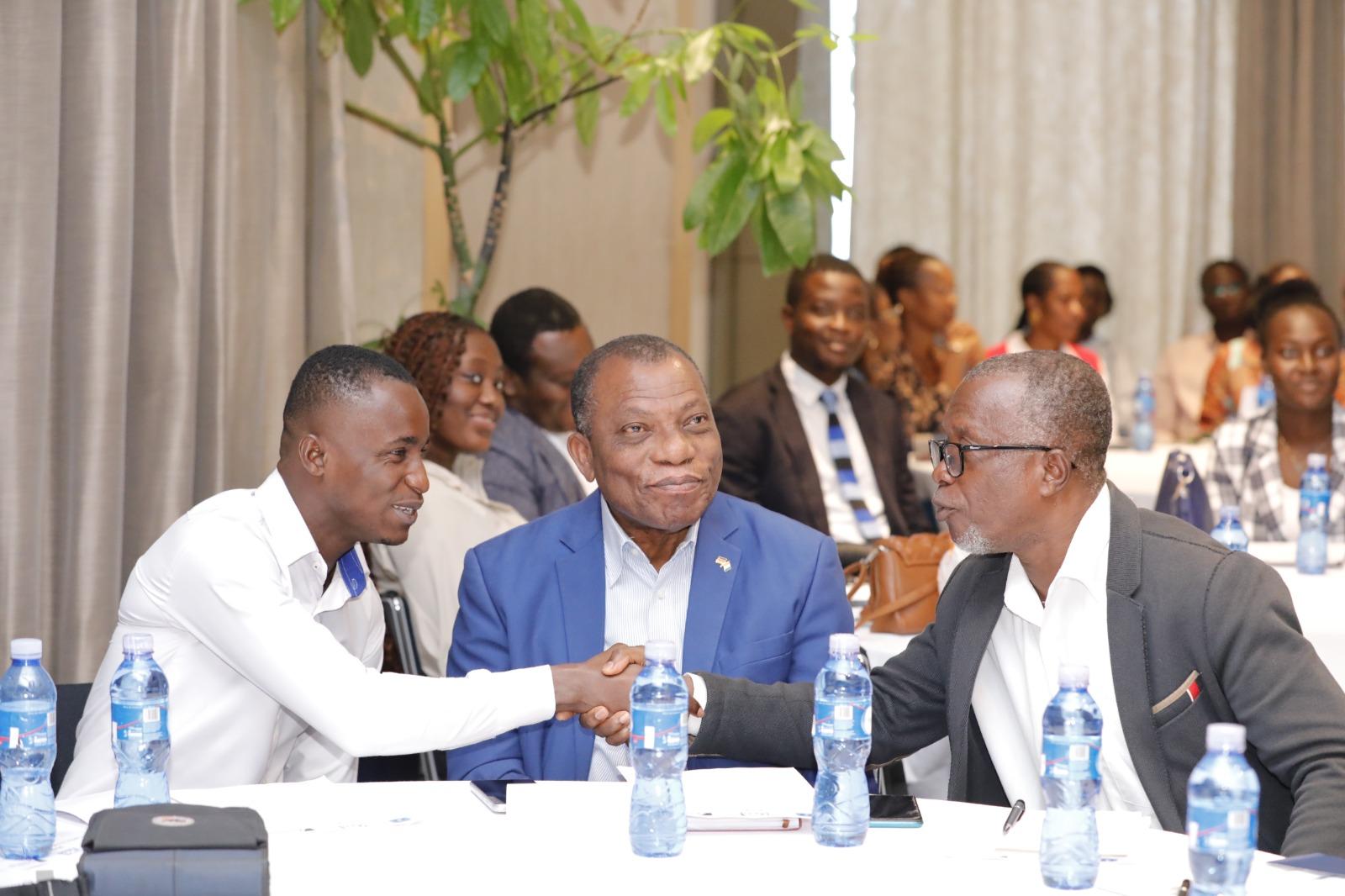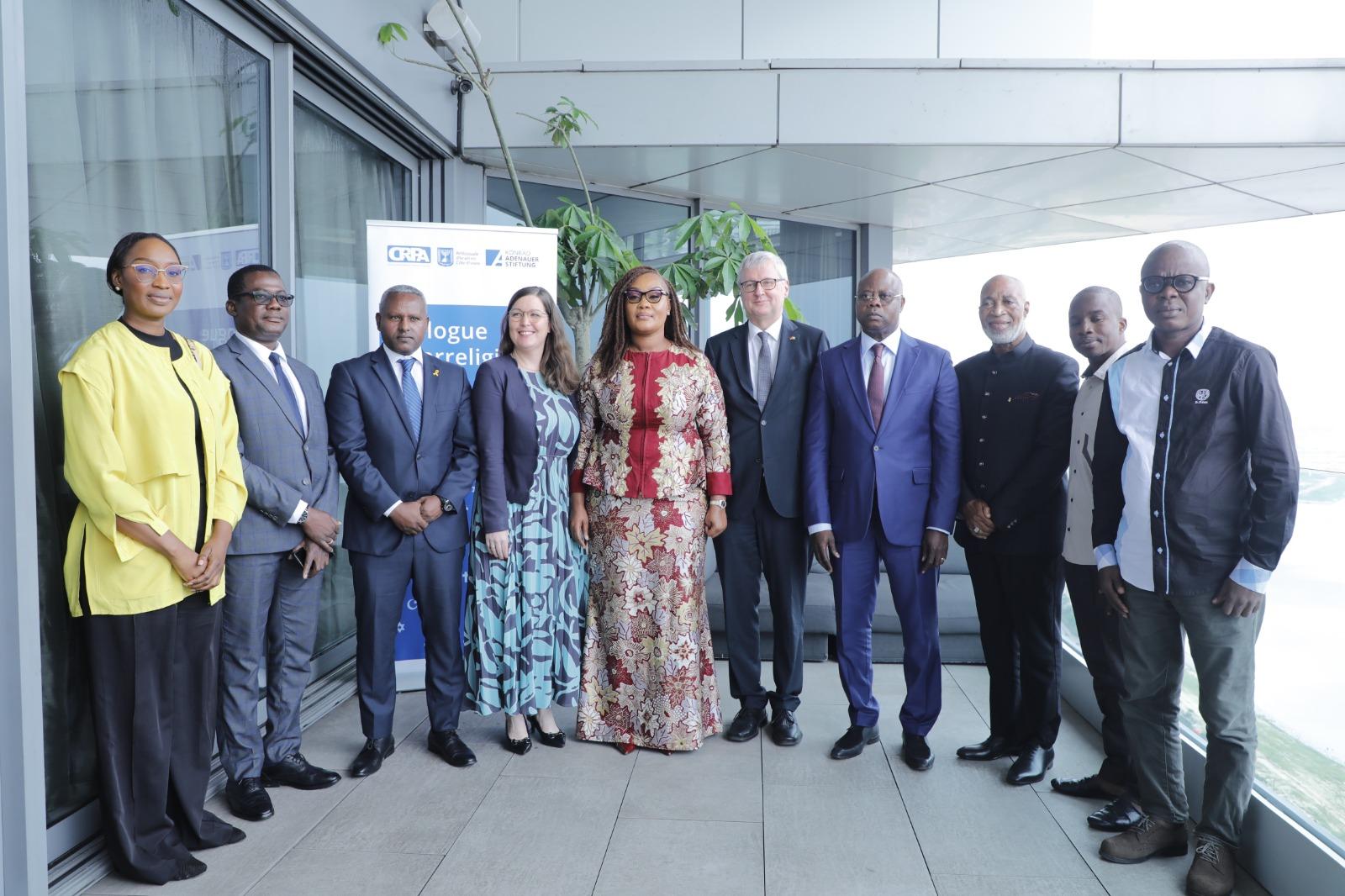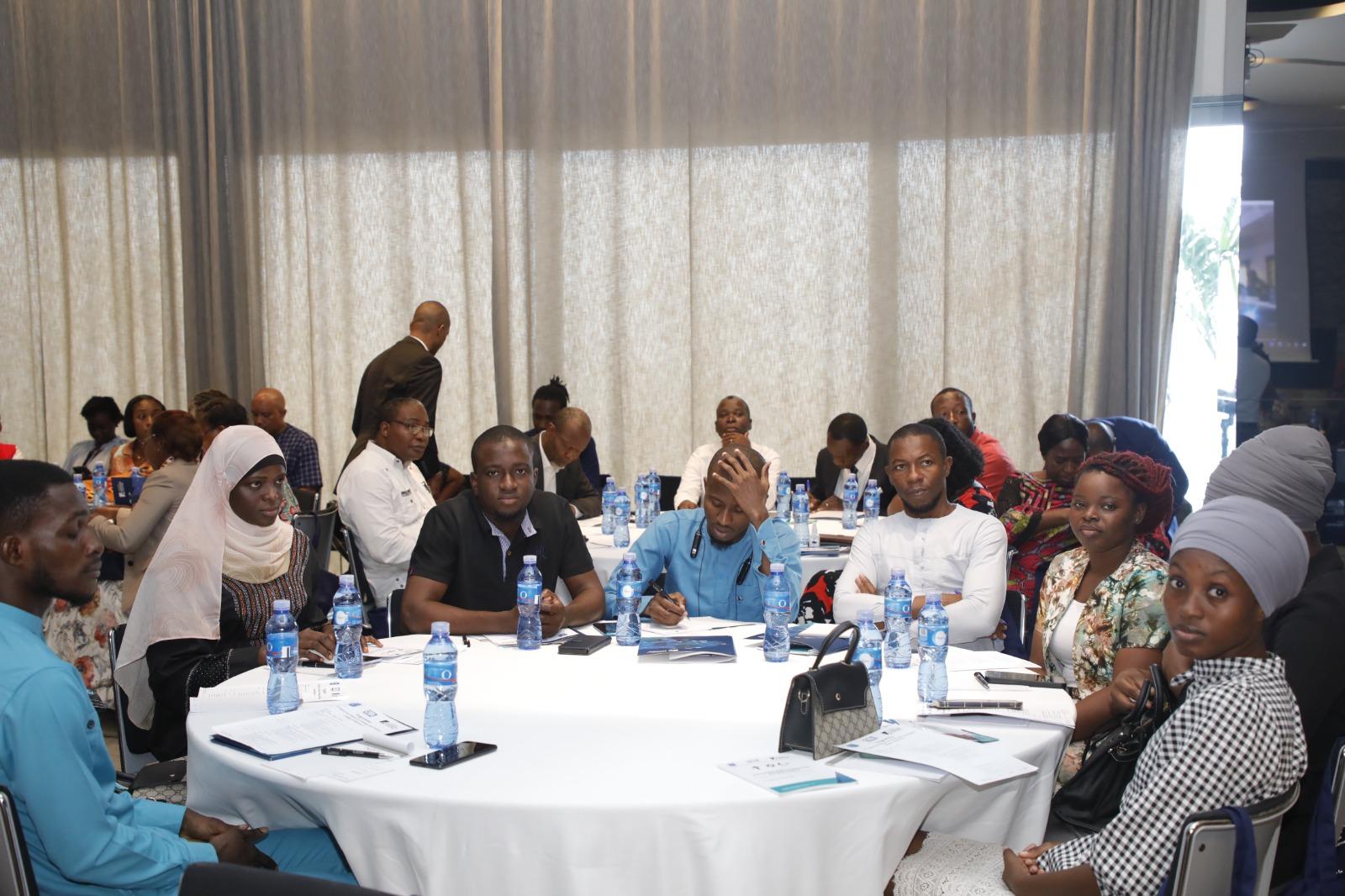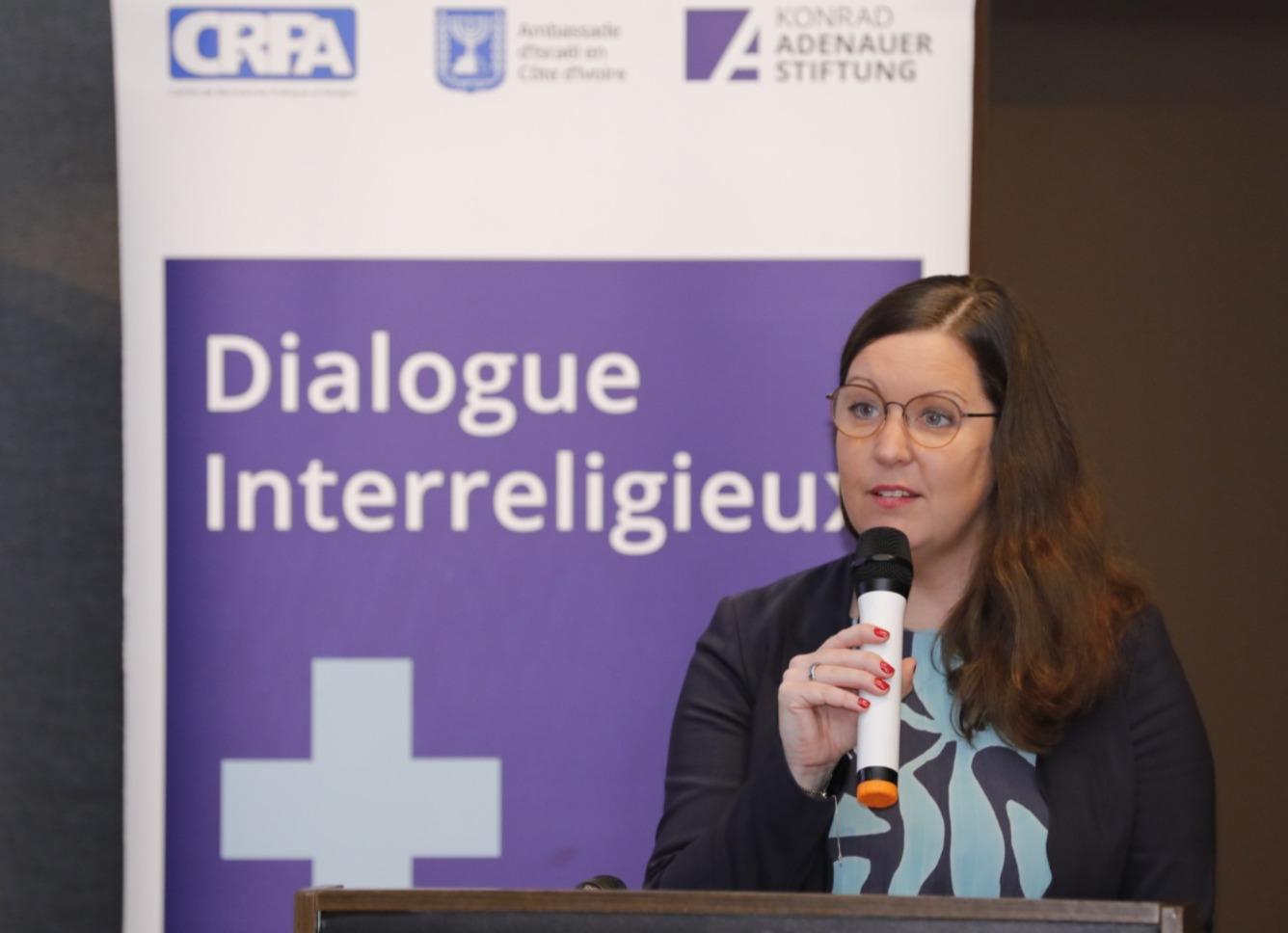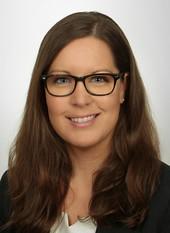From June 25 to 26, men and women of faith gathered with other members of civil society in Abidjan, Lomé, Cotonou, and Conakry, the main cities of the French-speaking countries covered by the KAS regional program.
In a simultaneous connection among the four countries, with the main hall located in Abidjan, pastors, priests, imams, and animists discussed with scientists the place of migration in their respective faiths and the solutions they propose to make the phenomenon an asset rather than a problem.
About a hundred participants took part in this meeting in person and online, with many experts from Jewish, Christian, Muslim, and animist faiths, who, on the basis of the founding texts of their faiths, attested that migration is an ancient phenomenon common to all mankind. Permanent displacement to improve one's well-being, to meet others, to share one's faith with other peoples, or to flee persecution, is almost as old as the world itself and is found in all races, peoples and religions.
Subsequently, a critical look at the abuses of certain forms of migration was provided by data from university researchers, which, if unregulated, rather harm the well-being of the migrant, their community of origin, or their host land. Illegality, risks on the route of despair, theft and rape, murder and racism, tribalism and economic precariousness, family pressure and stigmatization, the illusion of success and lack of preparation are just some of the descriptive words for the many ills that beset migrants. In West Africa as in the rest of the continent, it was also recalled that most migrations occur within African lands and only a tiny proportion expatriates outside the continent.
The various representatives emphasized that humans, regardless of their faith, should consider their God and divine prescriptions in their migration process. What are the reasons? Have they ensured the necessary guarantees? But given the sometimes-desperate situations that push some to leave, the religious faiths also reported the establishment within their communities, at least some of them, of counselling assistance and material support, of relay points for members of their community wishing to expatriate, who find points of contact before and after the trip allowing them to integrate well into the new host country;
In sum, the issue is pressing, and the men and women of faith present at this event did not fail to recognize it and promised to be, themselves, the first educators of their own for healthy migrations, which bring happiness rather than pain to migrants.
The ceremony was opened on Tuesday the 25th under the leadership of Ms. Myss Belmonde Dogo, Ivorian Minister of National Cohesion, Solidarity, and the Fight Against Poverty.
Group work preceded the closing of the activity on Wednesday the 26th, with key recommendations to be delivered to the public shortly by the CRPA.



